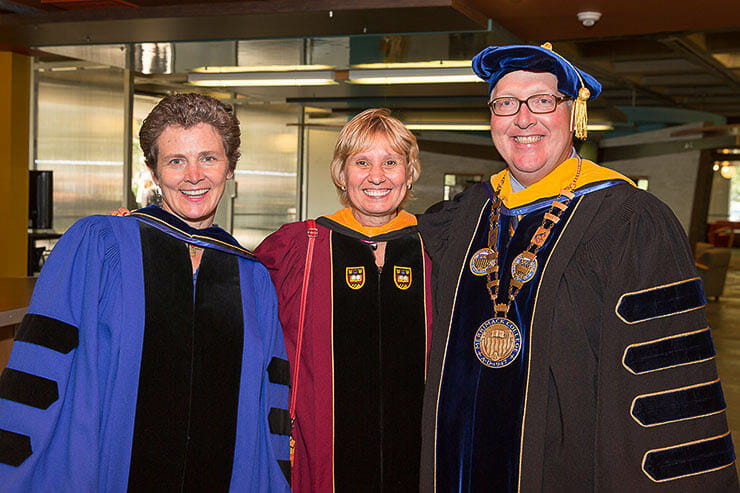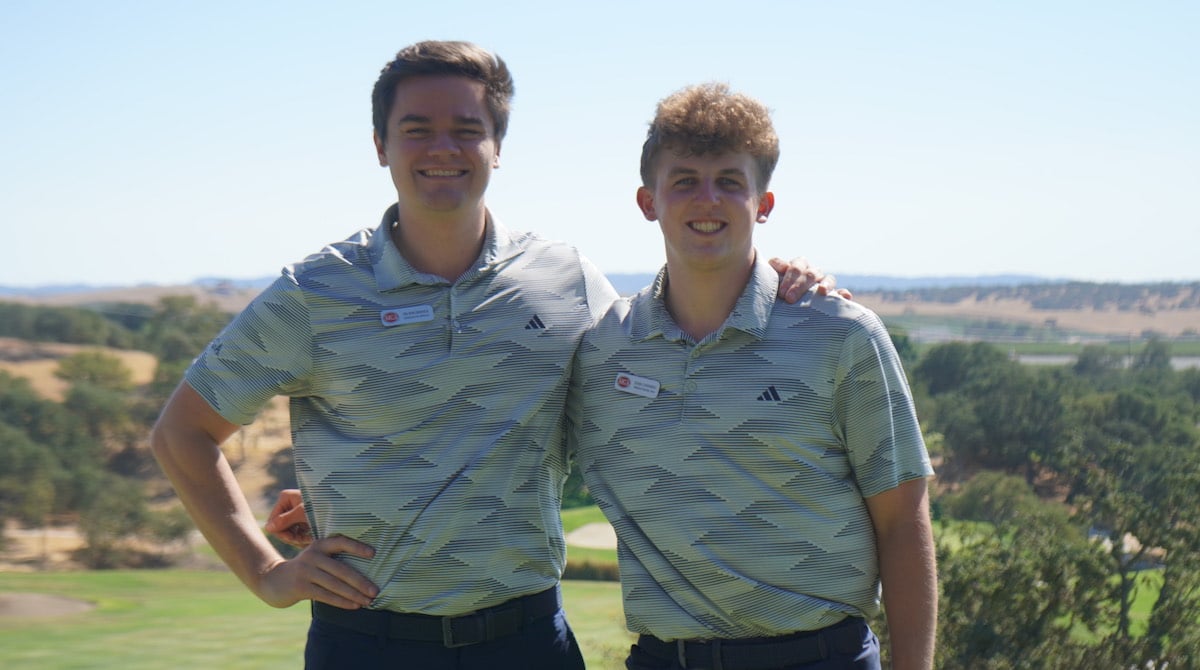“Together, let’s listen to that call,” Dlugos said. “Not just what we want but what is asked. We will be bigger, better, stronger, deeper than we ever would if we just listened to ourselves.”
President Christopher E. Hopey promised freshmen their teachers will offer all the help they need but the onus is on them to make an effort to succeed, while telling seniors the time has come to be leaders on the campus.
“I charge you to be models of the spirit of our community for these young men and women who will carry on after you have graduated,” he said. “Show them every day, in the classroom, on the field, in the dining halls and the doorways what Merrimack means to all of us.”
The 2015 recipient of the Edward G. Roddy Jr. Outstanding Teacher of the Year Christina Hardway, an associate professor of psychology, said everybody changes in college and freshmen will be different people when they graduate.
“You have a choice how you will change,” Hardway said. “How will you make this world more livable, humane, better?”
She urged them to look for connections between the academic and artistic disciplines then learn what they mean in deep and nuanced ways.
College is an exploration of the world, said Provost and Senior Vice President of Academic Affairs Carol Glod. Students should draw on the experience and talents of their professors who are glad to share their knowledge and experience because they learn from students, too.
“It’s about testing your ideas against others and testing boundaries,” Glod said.
She urged students to nurture their hearts as well as their minds during college.
Growing up is a wonderful experience for people and society, Braestrup said.
“A child, however adorable, is essentially useless,” she said. “An adult is useful and useful is fun.”
Trustworthy adults can make the world a better place. Merrimack College with its Augustinian values is a good place to learn to be a good person, Braestrup said.
The last generation has proven the immense good people can perform when they use their talents toward helping others. Popular literature in the 1960s forecast worldwide starvation and apocalyptic disaster because the planet couldn’t handle the population boom.
Fortunately, society didn’t despair which is a useless emotion, Braestrup said. Instead, technology increased food production and since 1970 the number of people living on the brink of starvation has shrunk 80 percent.
“The world isn’t getting worse, it’s getting better through the work of people who make themselves useful,” Braestrup said.
Watch Rev. Braestrup’s Convocation address below:




